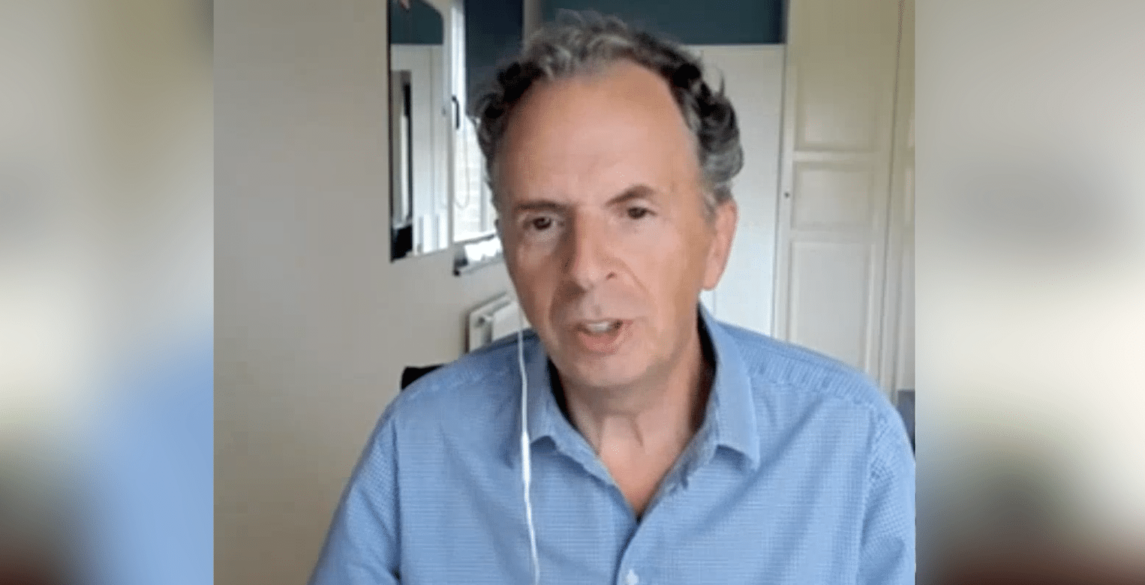Virtual Industry Update: Jesse van Sas, Secretary General, FIDI
Every year, Hilldrup hosts a forum where our clients gather and hear from experts across various industries related to their profession, such

Every year, Hilldrup hosts a forum where our clients gather and hear from experts across various industries related to their profession, such as relocation and HR. As you might suspect, COVID-19 complicated things a bit this year, but we didn’t want that to spoil the wonderful insight our speakers had to share! Instead, members of our team hosted a video Q&A with each speaker to get their thoughts on the current state of relocation and HR. Unsurprisingly, much of these conversations revolved around the pandemic – and how different facets of business will bounce back and evolve as a result. Below is a recap of our conversation with Jesse van Sas, Secretary General, FIDI. You also can watch the full video here!
In the midst of extensive worldwide change, how do you see the moving and mobility industry changing?
The comfort you have in such a challenging time is that we’re not suffering alone. Everyone is scratching their head and wondering how long this will take, how we’re going to get out of this and what the world will look like after.
Particularly in our business, the moving industry, we are a bit undercapitalized, our margins aren’t fantastic. There are so many players that we are dealing with. It doesn’t make it any easier for us. When you combine all of that with the COVID-19 crisis, it’s devastating. There will be some victors in the world, and there will be a bit of a shake-out, I’m afraid. That’s not a good thing on one hand, but it also offers opportunities.
You have to look at your customer base and see how they may change. One of the good things that may come out of this is large corporate customers and RMCs will probably broaden their supply chain again and localize it — giving more opportunities to smaller companies around the world.
Another thing you may begin to see, when you look at the challenges right now for traveling, is that short-term assignments, people traveling very frequently to and from countries, may change. They may find short-term assignments are not the best way forward. And will that be replaced by long-term assignments? I don’t know. Maybe there will be no assignments for a while. This is a game changer, and you better prepare for that.
I would hope that everyone in the moving industry look at their own companies over the past few years, scratch their head and say, ‘there must be a better way to do this.’ It’s an opportunity, as an entrepreneur, to take a hard look into your business and what you’re doing. Are you really happy with what you’re doing? Maybe, now is the time to change it.
Will we continue to see consolidation as a trend moving forward?
I think it’s too soon to tell. Had it not been for COVID, I think it would continue, no doubt. But with what’s happening right now, people have to look at what they have in their hands —and to venture into other mergers right now — I think it will take a while before they look into that again. Obviously, as some businesses struggle, there will be opportunities again for mergers and acquisitions. For right now though, it’s too soon to tell.
From a global perspective, what will reopening look like for the industry?
FIDI is trying to help by sending around best practices and gathering them from various companies from various parts of the world to see how you operate in a post-COVID time, when you still need to be very careful of what you do.
There’s a bit of concern — right after the lockdown and when things are opening up — that there will probably be a spike in activity for all the stuff that has been postponed, which will likely cause a resource problem for the movers. Hopefully, we’ll recover some of the lost revenue. There’s a general feeling that towards the end of the year, there will be a dip again. Many of the businesses (our customers) have been paralyzed for the past few months, and that has an effect on their investments, traveling, etc. And then next year, it’s totally new. It’s a new and unknown start for everybody.
What do organizations need to focus on in order to come out of this stronger?
This is not just a crisis. This is the biggest crisis you and I, in our lifetime and even FIDI’s lifetime, have ever seen. And it will change people’s behavior. When behavior changes, it’s a huge game changer because you, as a business, have to change as well and adapt to that new behavior. The longer this crisis is taking, the more this will be embedded in people’s way of thinking. No doubt, our customer profiles will change all of a sudden. Our demographics will change. And again, the business needs to adapt to that, and if you don’t do that quickly, if you don’t do that now, you’ll be too late.
The first reaction you have when you get into a crisis is ‘let’s do some firefighting.’ Let’s make sure that we have our cash in, that we have our people taken care of, just firefighting. You would not have a tendency to think long term right away, but again, this is a game changer.
This is not a normal crisis. You need to think strategically on how you’re going to get out of this. Not just in two months, three months—what will next year look like? Or the year after that? How is your business and your customer base changing? Try to adapt to that. It’s a big challenge, I realize, but it’s vital that our businesses do that.
It will not be as before, and anybody expecting that it will return to business as usual will be in for a surprise. It will be different—but please do look at this as an opportunity.


